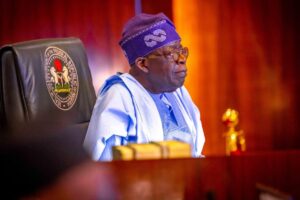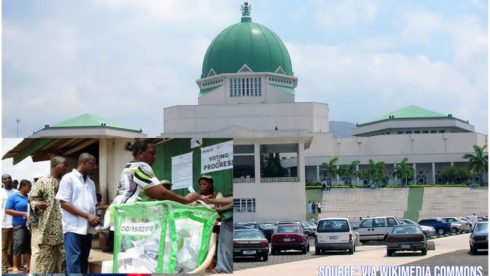The National Assembly is set to reconvene next week, with a strong emphasis on the Local Government Election Bill. This crucial piece of legislation aims to bring sweeping reforms to how local government elections are conducted across the country. Spearheaded by prominent lawmakers, the bill is expected to dominate discussions in both chambers as part of broader efforts to improve local governance and deepen democracy at the grassroots level.
As the legislative body returns to session, its agenda will also include deliberations on other pressing matters such as constitutional amendments, the 2025 budget, and judicial reforms. However, the Local Government Election Bill, championed by Senator Mohammed Sani Musa of Niger East, is expected to be at the forefront of discussions, given the importance of local government autonomy to the nation’s democratic structure.
National Assembly: The Drive for Constitutional Amendments and Judicial Reforms
Beyond the Local Government Election Bill, the National Assembly is also focusing on a broader constitutional amendment aimed at solidifying local government autonomy. One of the key proposals includes giving local governments more financial independence and ensuring the non-interference of state governments in their affairs. The discussions around this will also touch on the 2025 national budget and judicial reforms that seek to streamline the legal processes associated with local government administration.
The proposed amendments are set to enhance the authority of local governments, allowing them to function more effectively and efficiently. A key area of concern is Section 197(1) of the constitution, which mandates the establishment of State Independent Electoral Commissions (SIECs) to oversee local elections. Lawmakers believe that centralizing this process under a national body could lead to more transparent and credible elections at the grassroots level.
National Assembly – Senator Sani Musa Champions NILGEC Formation
At the heart of the proposed reforms is the creation of the National Independent Local Government Electoral Commission (NILGEC). This body, if established, will take over the responsibility of conducting local government elections from the SIECs. Senator Mohammed Sani Musa has been a vocal advocate for the NILGEC, arguing that it will provide greater consistency and impartiality in local elections across the country.
Musa believes that state electoral commissions have often been subject to political influence, undermining the credibility of local elections. By establishing NILGEC, the hope is that elections for local government chairpersons and councillors will be conducted in a free, fair, and transparent manner, similar to how the Independent National Electoral Commission (INEC) oversees national elections.
National Assembly – Streamlining Local Government Election Oversight
The transition from state to national oversight of local elections is seen as a crucial step in ensuring uniformity and fairness. Currently, SIECs, which are established in every state, handle the conduct of local elections. However, critics argue that these bodies are often influenced by state governors, leading to biased election outcomes. The proposed NILGEC will provide a standardized framework that eliminates such interference, allowing local governments to better represent the will of the people.
The legislation’s supporters believe that this shift is necessary to improve local governance and ensure that grassroots democracy is preserved. As the National Assembly prepares to debate the bill, the potential to revolutionize local government elections is clear. However, concerns remain about how the transition will impact existing structures and the extent to which states will relinquish control.
Potential Constitutional Challenges Ahead
Despite the momentum behind the bill, potential constitutional hurdles could slow its progress. Section 197(1) of the 1999 Constitution, which mandates the establishment of SIECs in every state, would need to be amended for NILGEC to take over local election oversight. This requires not only the approval of the National Assembly but also the consent of at least two-thirds of the State Houses of Assembly, making the process potentially lengthy and complex.
Insiders within the National Assembly have indicated that this constitutional amendment could face resistance from some states, particularly those whose governors enjoy significant influence over SIECs. Balancing the need for local government autonomy with state interests will be a delicate task as lawmakers navigate these potential obstacles.
National Assembly – Speedy Passage of the Bill Anticipated Despite Concerns
While constitutional challenges loom, there is optimism that the Local Government Election Bill will be fast-tracked through the legislative process. The bill has garnered substantial interest from various stakeholders, including civil society organizations, local government associations, and political parties. These groups see the proposed reforms as a long-overdue step toward enhancing democracy at the grassroots level.
Despite the anticipated resistance from some quarters, the bill’s advocates are confident that its benefits will outweigh the concerns. They argue that the establishment of NILGEC will significantly improve the integrity of local elections and ensure that local government officials are truly accountable to their communities. The coming weeks will reveal how the National Assembly navigates these complex legal and political landscapes to deliver meaningful reforms.
Table of Contents
Discover more from OGM News NG
Subscribe to get the latest posts sent to your email.














